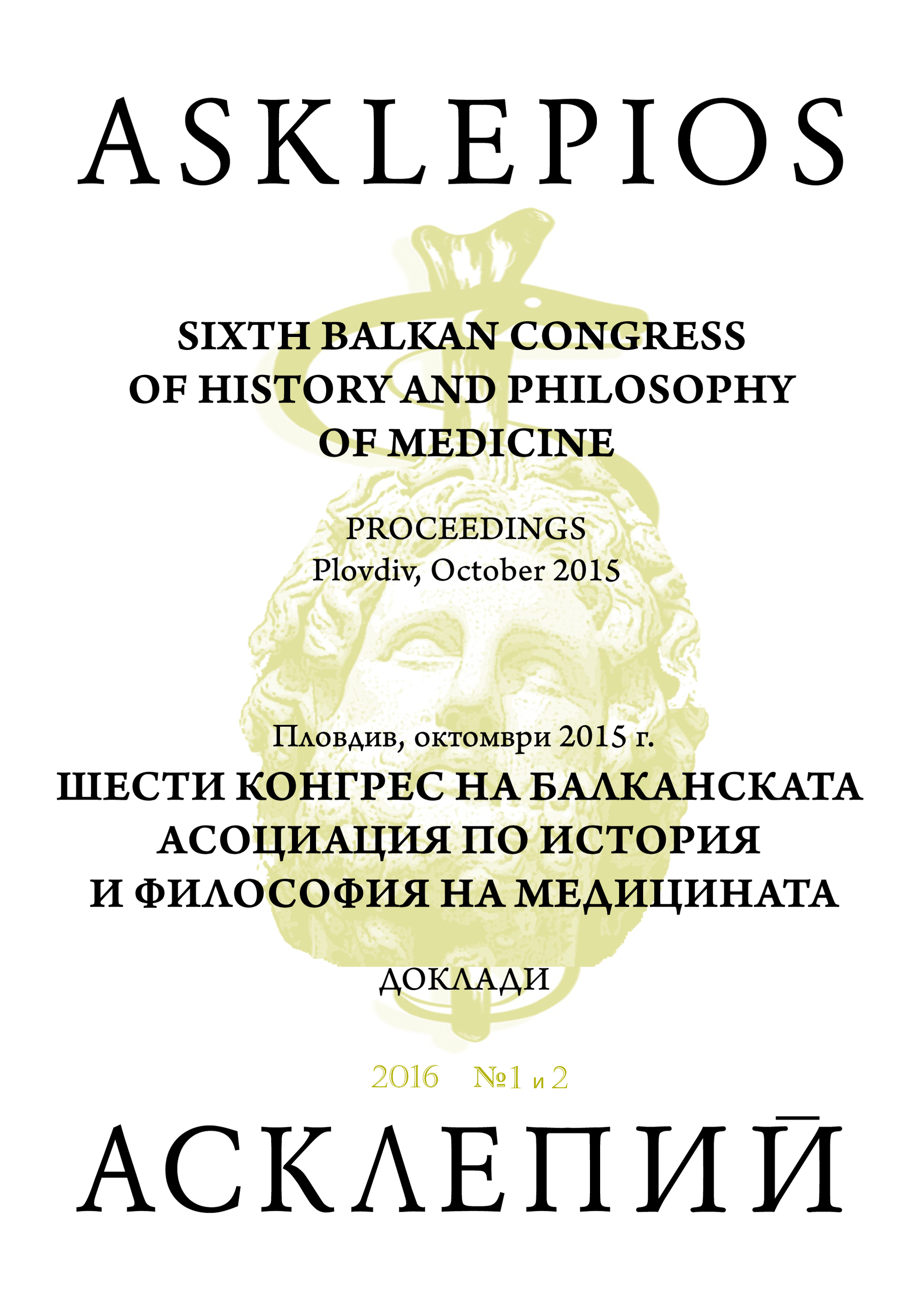Тестовете за Бързо серийно назоваване – в медицината и логопедията
Tests for Rapid series naming – in medicine and logopedy
Author(s): Katerina ShterevaSubject(s): Social Sciences, Health and medicine and law
Published by: Балканска асоциация по история и философия на медицината (БАИФМ)
Keywords: Rapid automatic naming (RAN); alexia without agraphia; reading ability; Double- Deficit Hypothesis; autism
Summary/Abstract: This article presents a historical and contemporary term relationship between medicine and speech therapy in the use of tests for rapid serial naming. Tests for rapid automatic naming (RAN) are mentioned for the first time by Geschwind and Fusillo (1966) who first tried out these tests on adults after stroke, suffering from alexia without agraphia. This discovery led Martha Denckla and Rita Rudel in 1974 to test the ability of naming the colors on children between ages 5 to 11 with a failure in learning to read. So historically, rapid automatic naming (RAN) has emerged as a sensitive indicator of reading ability. The statement discused important issues relating to whether the stimulus for rapid naming should be given in a continuous or discrete format. Some authors argue that the use of discrete format is a more clear measure of the ability to rapid naming, as it eliminates the scanning process, arranging and participation of the motorics, etc. Proponents of the continuous version claim that the nature of rapid serial naming makes the tests a precise and rigid indicator in determining reading ability. In the body of the paper, questions about whether the rapid serial naming has a clear distinctive contribution as a predictor of reading ability is addressed as well as how its contribution is independent compared to other cognitive or linguistic indicators, for example, phonological awareness and operative memory and others. A cognitive model by Wolf and Bowers (1999) for naming letters is presented along with the Double-Deficit Hypothesis. The author of this paper presents own experience in conducting longitudinal study with Bulgarian children on the relationship between rapid serial naming, phonological awareness and reading (Stereva K., 2012). Some of the latest research related to neurological representations (fMRI testing) and rapid naming are introduced. The contemporary idea of conducting research on rapid serial naming as a potential marker for confirmation of genetic determination in autism is analyzed. The article ends with the presentation of data on manifestations of rapid naming deficits in adults with reading disorders.
Journal: Асклепий. Международно списание по история и философия на медицината
- Issue Year: XI/2016
- Issue No: 01+02
- Page Range: 394-400
- Page Count: 7
- Language: Bulgarian
- Content File-PDF

